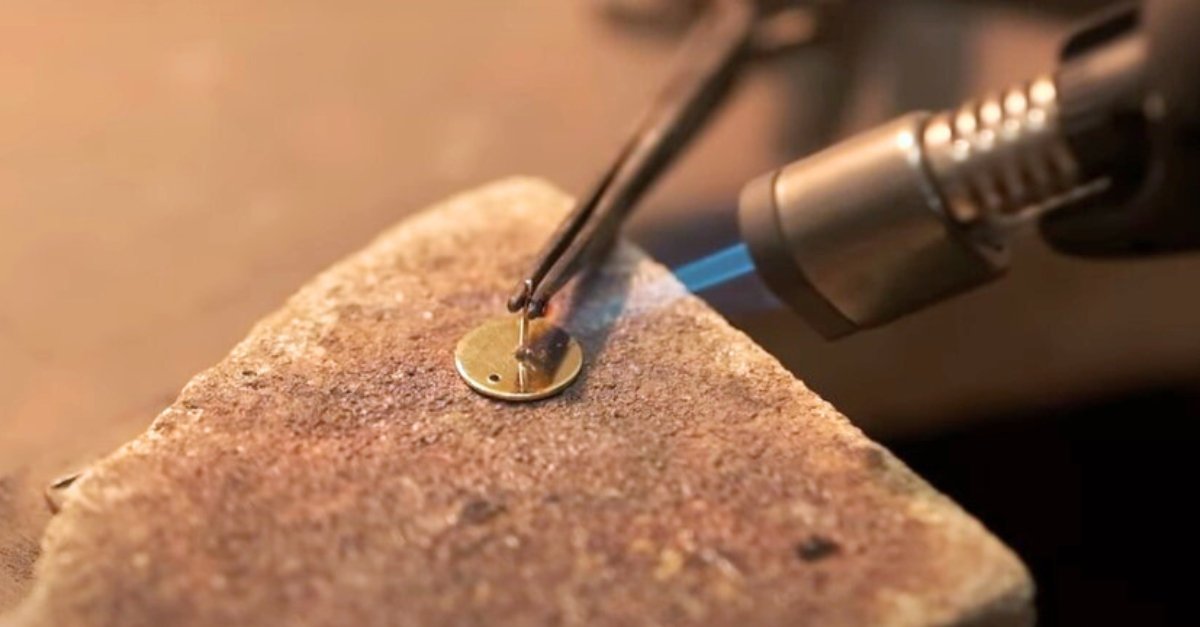For artisans, designers, and DIY enthusiasts, buying gold for jewelry making can be both exciting and intimidating. Whether you’re creating custom pieces or experimenting with precious metals, understanding how to source the right type of gold is essential.
Understanding the Types of Gold Used in Jewelry Making
Not all gold is created equal — especially when it comes to crafting. Here are the most common types of gold used in jewelry making:
1. Gold-Filled Metal
Gold-filled is a great budget-friendly option that still gives you the look and feel of real gold.
- ✅ Made by bonding a layer of gold to a base metal
- ✅ Contains significantly more gold than gold-plated items
- ✅ Durable and long-lasting if cared for properly
Perfect for making earrings, necklaces, and bracelets without the high cost of solid gold.
2. Gold Wire & Sheets (Solid Gold)
If you’re working with solid gold, you’ll typically use gold wire or sheet metal in various karats.
- ✅ Available in 10K, 14K, 18K, and 24K
- ✅ Can be melted, cast, or shaped into intricate designs
- ✅ Ideal for custom fine jewelry
Many jewelers prefer 14K gold for its balance of purity, strength, and color.
3. Gold Scrap & Melting Grain
Gold scrap (like broken chains or old rings) can be collected and melted down to create new pieces.
- ✅ Cost-effective way to get raw gold material
- ✅ Often available from pawn shops, estate sales, or gold buyers
- ✅ Must be refined and purified before use
Make sure you have the proper tools and knowledge before melting or casting gold at home.
4. Gold Plated & Vermeil
While not ideal for long-term wear, gold-plated and vermeil (gold-plated silver) options are good for beginners or costume jewelry projects.
- ✅ Affordable and easy to work with
- ✅ Not as durable as gold-filled or solid gold
- ✅ Great for practice or fashion-forward designs
Where to Buy Gold for Jewelry Making
Here are some reliable sources for purchasing gold materials:
1. Online Jewelry Supply Stores
Websites like:
- Rio Grande
- Metalsmiths Direct
- Fire Mountain Gems
- The Hot Shop
Offer a wide selection of gold wire, sheet, findings, and casting grain — often at wholesale prices for small businesses or hobbyists.
2. Local Jewelry Supply Shops
Support local artisans by visiting nearby bead stores, craft shops, or metalworking studios that carry gold supplies.
- ✅ Hands-on experience with materials
- ✅ Expert advice from professionals
- ✅ Often offer classes or workshops
3. Pawn Shops & Estate Sales
Looking for gold scrap or second-hand gold jewelry to melt?
- ✅ Pawn shops often sell unwanted gold items at a discount
- ✅ Estate sales may include vintage gold pieces
- ✅ Always test gold content before buying
Use a gold testing kit or consult a professional jeweler to verify karat weight.
4. Refineries and Gold Buyers
Some refineries allow artists and jewelers to purchase raw gold grains or scrap directly.
- ✅ Bulk pricing available
- ✅ May require documentation or licensing
- ✅ Best suited for serious jewelry makers or small-scale manufacturers
Tips for Working with Gold in Your Jewelry Studio
Before you start crafting, here are a few key tips:
🔧 Use the Right Tools
Gold is softer than many other metals, so it requires specialized tools:
- Gold-specific saw blades
- Non-metallic hammers (plastic or rawhide)
- Proper torches and soldering equipment
⚠️ Safety First
Melting or soldering gold involves high heat and chemicals:
- Wear protective eyewear and gloves
- Work in a well-ventilated space
- Follow fire safety protocols
💡 Recycle and Reuse
Save leftover bits of gold filings, clippings, or failed attempts — they can be collected and reused in future projects.

Frequently Asked Questions (FAQs)
Q1: Can I make jewelry with gold-filled metal?
Yes! Gold-filled is a popular choice for handcrafted jewelry due to its durability, affordability, and gold-like appearance.
Q2: How do I test gold before buying it for crafting?
Use a gold testing kit with acid solutions or take it to a certified jeweler for an XRF scan to determine karat purity.
Q3: Is it legal to melt down gold for jewelry making?
Yes, it’s legal to melt gold you own — but always ensure you’re not violating any laws related to stolen or counterfeit materials.
![Image Suggestion 3: A close-up of a jeweler soldering a gold ring with magnifying lamp and tools visible]
Alt Text: Jewelry artisan soldering a gold ring in progress
Final Thoughts
Buying gold for jewelry making doesn’t have to be expensive or complicated. Whether you’re using gold-filled wire , solid gold sheets , or recycled gold scrap , there are plenty of options to suit every skill level and budget.

